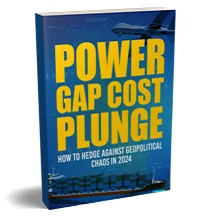
The consequences of high consumer price inflation, massive government debt, and countless economic distortions, were never really worth it to begin with. As the last of the stimulus is consumed and wasted away, a great reckoning awaits.
What will happen when the labor market rolls over and debt overloaded consumers lose their jobs? We may soon find out.
In fact, longtime market analyst Gary Shilling sees a recession coming by the end of the year, with unemployment rising up to 7 percent. He also believes stocks, which have been driven higher by speculation, could drop as much as 30 percent. And that the decline could be violent.
“You look at all the kind of speculation that we’ve had out there, it’s indicative of a lot of overconfidence, and that usually gets corrected and corrected violently.” Continue reading








